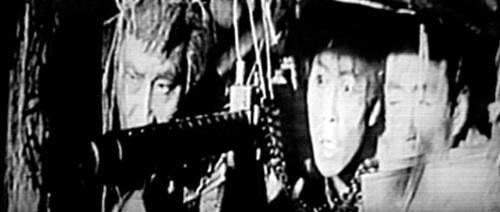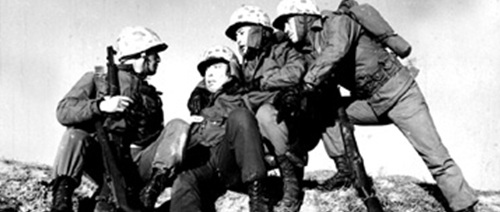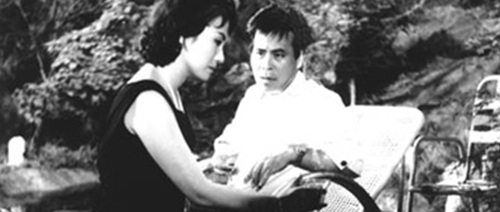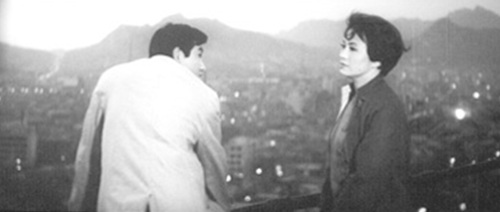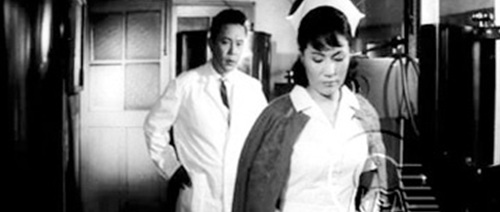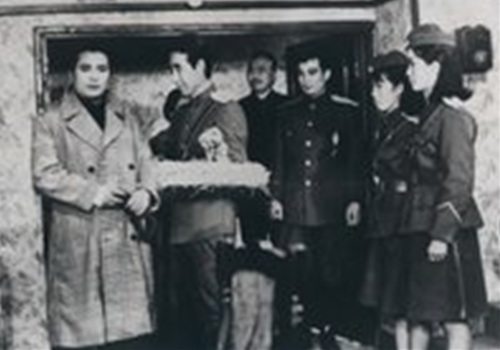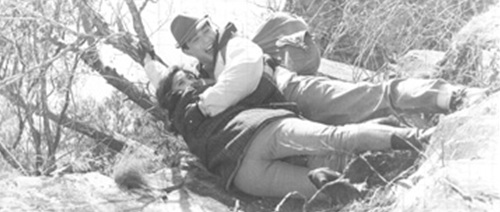영화 정보
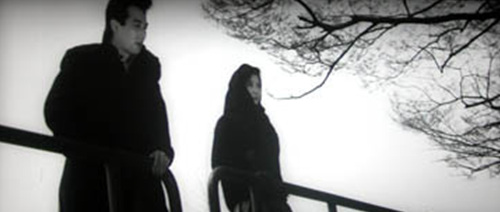
Holiday
10th(2005) Korean Cinema Retrospective: Lee Man-hee, the Poet of Night
Family · Love/Romance · Social Criticism
- CountryKorea
- Production Year1968
- Running Time76 min
- Format 35mm
- ColorB&W
Program Note
Huh-wook and Ji-yeon are a destitute couple who meets on every holiday, having nothing to do but spending time at an empty park, even without money for a cup of coffee. She informs him d her pregnancy, and he wonders off the city to get money for the abortion. The doctor tells them a baby is in an extreme delicate condition to have, so the abortion is needed. In this film the city is portrayed gloomy and desolate, and people who live in are either hypocrites or in despair. Neither deliverance nor bright future seem to be ahead of this miserable couple, that an overwhelming sense of hopelessness on silver screen absorbs the audiences as well. The film is said to begin with a narration by the dead body found in the river, and to end with a scene in which a fully decomposed body is shown. Both parts had to be excluded in its final version. Yet the film never passed the government censorship for public release, due to its supposedly decadent sentiment. With this new discovery the audience will be able to witness Lee′s cinematic maturity and experimentation that are still valid. (Cho Young-jung)
Director


LEE Man-hee
Born in 1931, director Lee Man-hee graduated from Kyungshin High School and served as a communications soldier during the Korean War. He worked as assistant to director Ahn Jong-hwa in 1956 and entered the film industry. At the recommendation of actor Kim Seung-ho, he debuted as a director with The Guiding Light in 1961 and began to receive recognition with Dial 112, a noire style thriller, in 1962. He achieved both artistic and commercial success with war films or thrillers such as The Marines Who Didn′t Come Home, Soldiers Without a Serial Number, and The Devil′s Stairway, and dramas like Late Autumn and A Road to Return. The filmmaking conditions worsened after the 70s, but Lee Man-hee was obsessed with making films, which gradually wore down his health. On April 3, 1975, he lost consciousness in the editing room while working on The Way to Sampo and fought for his life for ten days before passing away on April 13 at the age of 45.
Photo


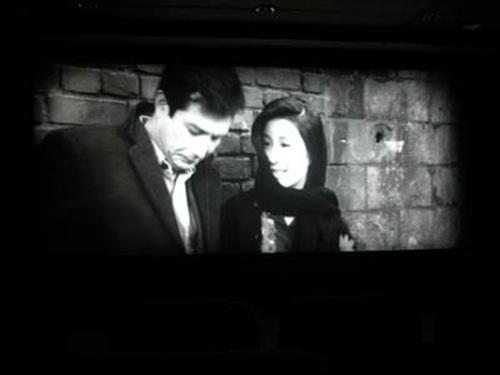
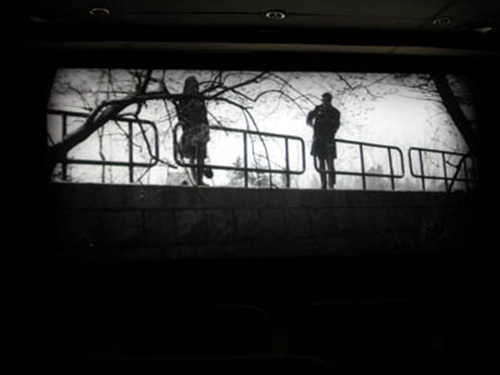




Credit
- Director LEE Man-hee 이만희
- Producer Hong Ui-sun
- Cast Shin Seong-il, Jun Ji-yeon, Kim Sung-ok
- Screenplay Baek Kyeol
- Cinematography Lee Seok-Ki
- Production Design Jung Su-pan
- Editor Hyun Dong-chun
- Sound Son In-ho
- Music Jeon Jung-geun





